Femia > Health Library > Getting Pregnant > Trying to conceive > Can an ovulation test detect pregnancy: here’s what you may want to know
Can an ovulation test detect pregnancy: Here’s what you may want to know
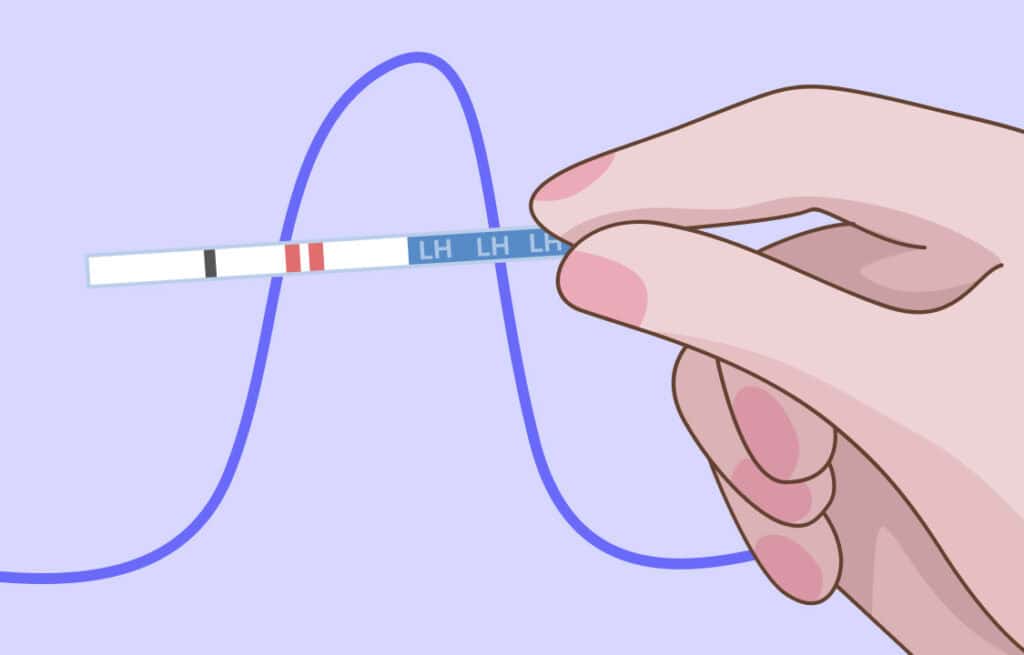
- Updated Feb 11, 2025
- Published
CRAFTED BY HUMAN
Crafted by human At Femia, we provide accurate and up-to-date information at every stage of your journey, from trying to conceive, pregnancy and postnatal support. All content is created by a real person based on in-depth research and own professional experience. Femia ensures that you will receive expert advice, strict accuracy and a personalized approach from our authors/medical experts. Learn more about our editorial policy.
FACT CHECKED
Fact checked At Femia Health, we maintain the highest standards of editorial excellence in delivering content focused on helping you conceive, guiding you through pregnancy, and supporting you postpartum. Explore our content review principles to learn how we ensure the accuracy and quality of our health and lifestyle tips for every stage of your journey.
Sometimes, yes, an ovulation test may detect pregnancy at the time you take it. The reason for this is that the ovulation test may confuse hormones, identifying increasing hCG pregnancy hormone instead of ovulation ones.
If you know what an ovulation test is and use it, chances are you are tracking your cycle to either get pregnant or avoid it.
And now, if you’ve been trying to get pregnant or suspect you already might be, you are wondering whether an ovulation test can also detect pregnancy. The short answer is yes, but rarely reliably.
Let’s explore how an ovulation test works, how it differs from pregnancy ones, and find answers to other most popular questions on that topic.
👉Find out more: If you ovulate in the morning can you get pregnant that night?
How do ovulation tests work?
While ovulation tests tend to be pricey, they are easy to use and highly effective when you are trying to get pregnant. They detect ovulation by identifying luteinizing hormone in your pee—these is one of the main hormones released by a woman’s body during her menstrual cycle.
Luteinizing hormone levels surge 36 hours before the egg is released and enter the urine about 12 hours after the surge. So, the LH predictor ovulation test will be positive 24 hours before ovulation itself.
Ovulation tests are very similar to pregnancy ones, as they require you to hold the stick in your stream of pee for as long as the instruction on the test suggests. If it is easier, you can always collect your pee in a cup and dip the stick for the same time period.
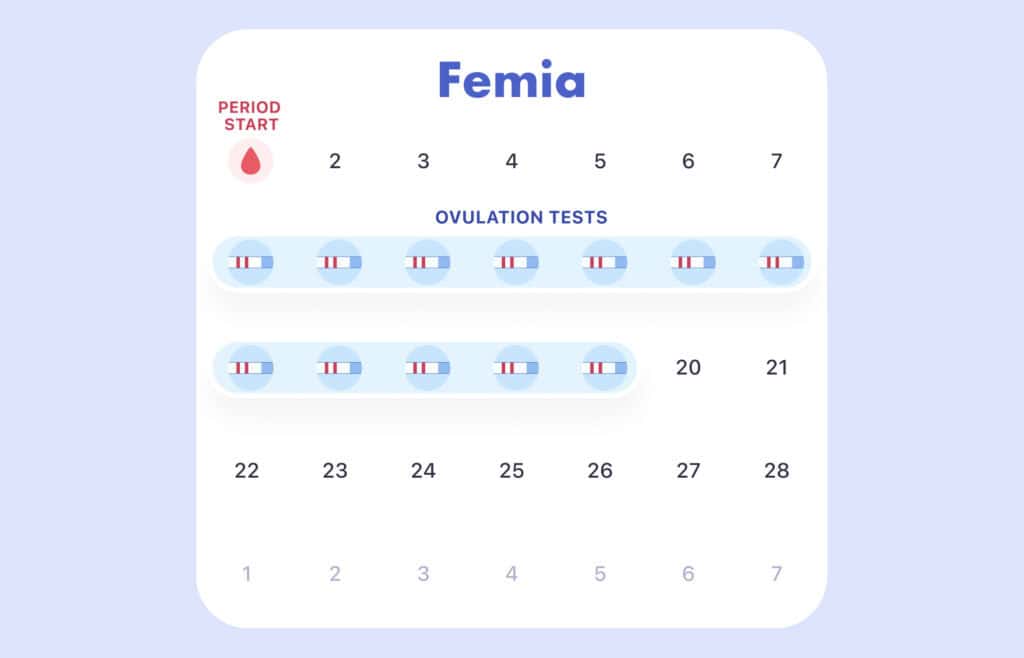
@femia.fertility Ever wondered if you can get a negative pregnancy test when you're actually pregnant? Dr. Hector Chapa explains why it can happen and shares the best time for the most accurate test results. Drop a ❤️ if you're ready for a baby and can't wait for positive test results! #pregnancy #pregnancytest #pregnancytestresults #fertilityawareness #TTC #ttctiktok #LearnOnTikTok #falsenegative ♬ Love Of My Life - Metrow Ar
Can you have a faint positive ovulation test if pregnant?
It is possible for an ovulation test to detect early pregnancy. Although it isn’t designed for this purpose, you may still see two lines on an ovulation test when pregnant.
👉Find out more: Can you get pregnant when you’re not ovulating?
Femia offers the most accurate tool for determining ovulation and fertile days
Why are ovulation tests sometimes positive during pregnancy?
Ovulation and pregnancy tests identify different hormones — LH and hCG, respectively.
However, these hormones are chemically very similar, so an ovulation test sometimes fails to distinguish between them. If an ovulation test misidentifies rising levels of pregnancy hCG hormone in your urine, it may also be positive for ovulation when pregnant.
If you take an ovulation test by the end of the menstrual cycle, when the fertilized egg has already implanted in the uterus, your body may have produced enough pregnancy hormone for the ovulation kit to identify it.
So, if you are stuck with the question “I see a faint line on ovulation test, could I be pregnant?” then yes, it might mean you are. That is because LH hormone peaks only during ovulation and then decreases (in most cases after 24 hours), irrespective of pregnancy.
Your pregnancy hormone levels, on the other hand, will only continue to rise, doubling every few days during the first 12 weeks of pregnancy.
Some might also wonder, will the ovulation test get darker if pregnant? While it’s sometimes possible for an ovulation test to detect pregnancy hormones, there is no evidence that lines will get darker if an ovulation test detects pregnancy.
👉Find out more: Can Mucinex help you get pregnant? How to use it for better fertility
When should you take an ovulation test?
You may want to use an ovulation test when seeking the best day to try and conceive. The best time to use an ovulation test is a few days before you’re scheduled to ovulate – midway through your menstrual cycle.
Women’s fertile window is five days before ovulation and one day after. The most fertile days are two days before and the exact day of ovulation. Sperm lives in the woman’s body for up to five days, so having sex within this six day period gives you the greatest chances of getting pregnant.
Predicting ovulation might be a tricky task, but using menstrual cycle tracking apps like Femia can greatly help. If your cycle is somewhere between 28-30 days, you’ll likely ovulate on or around days 14-16, so you may want to use a test around day 11-13.
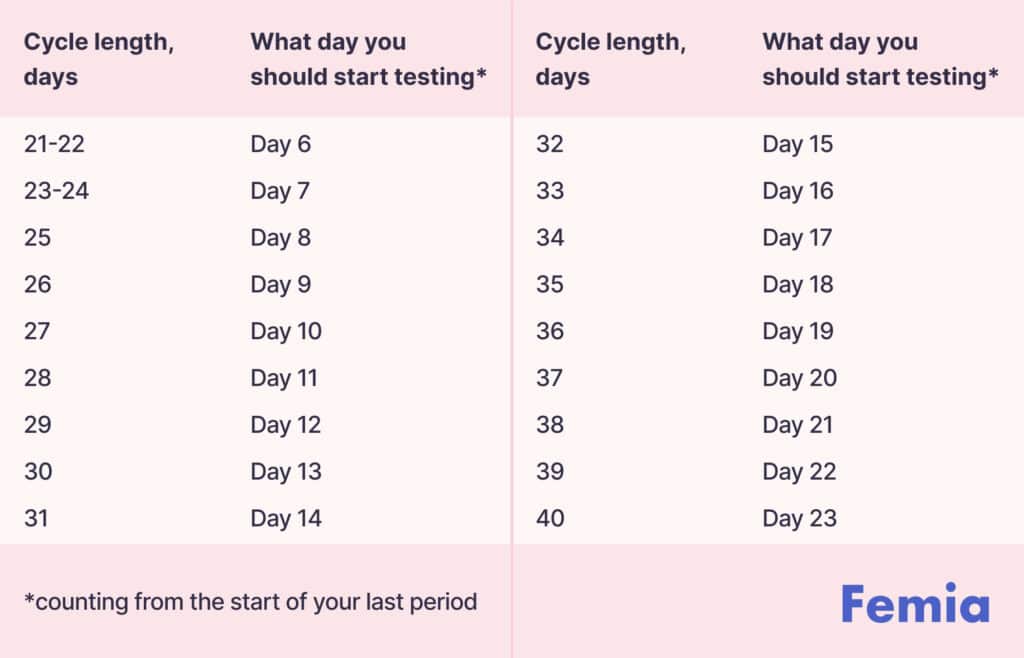
When should you take a pregnancy test?
You can start considering and taking pregnancy tests from the first day you miss your period. If you don’t track your cycle and are not sure when the due date of your next period is, consider taking a test at least 21 days after you last had unprotected sex.
Some advanced and super-sensitive tests can also identify pregnancy even before you miss a period. So, if you notice any signs of early pregnancy or notice some changes after unprotected sex, these tests are the way to go. These are some of the most common pregnancy signs:
- Missed periods
- Nausea
- Vomiting
- Breast changes
- Tiredness
- Frequent urination
👉Find out more: How long after implantation bleeding can I test for pregnancy?
Please note that these symptoms may also signal high stress levels and some diseases, so consulting a healthcare professional is always better.
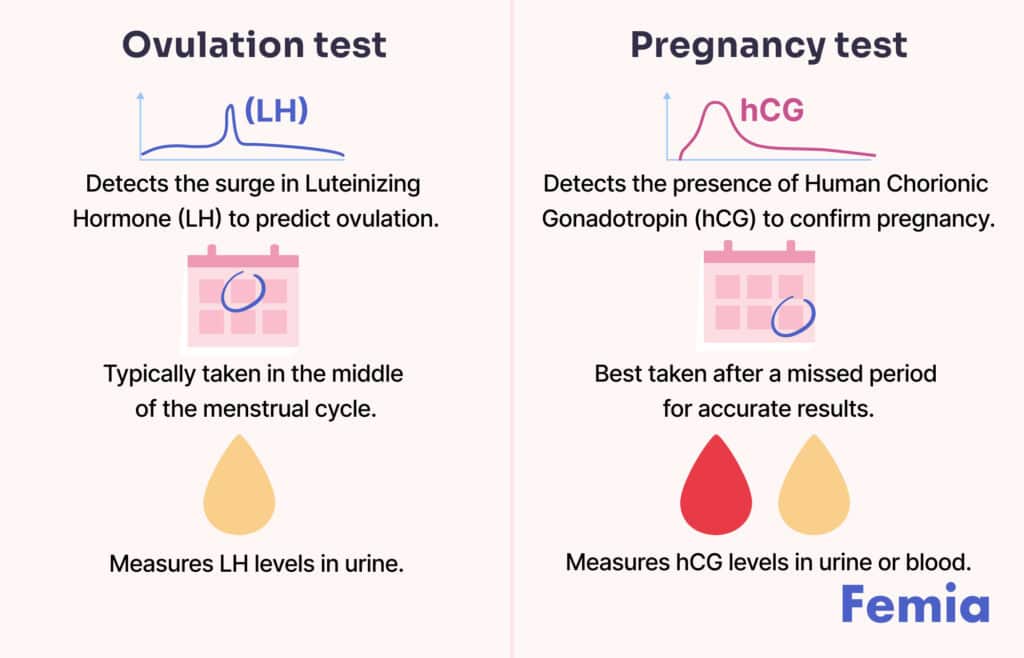
How do you tell if you are pregnant or just late?
There are many reasons your period can be late besides pregnancy, which might cause confusion.
Reasons like high stress levels and climate change to common hormonal imbalances and pregnancy may all lead to a late period. In addition, it’s also common to have late or irregular cycles during some phases of life, such as soon after menstruation begins in teens and when a woman is about to start or end menopause.
A menstrual cycle is considered normal when it ranges between 21 and 35 days. However, some women may naturally have irregular cycles. A healthcare provider can help determine if this is normal by performing some medical tests to rule out any underlying health causes.
For example, when women are too stressed, their bodies produce stress hormones, which can slow down the production of sex hormones in the ovary, causing irregular menstrual cycles.
The same happens when you exercise too much, such as long and frequent running sessions or heavy weightlifting. Many types of birth control, like pills, shots, and arm implants, can also make periods irregular, especially at the beginning of their use.
If your period is late, you may experience some symptoms similar to early pregnancy, like mild uterine cramping, heavier breasts, nausea, constipation, and mood swings. These symptoms are caused by increasing levels of the hormone called progesterone, which occurs in both the premenstrual part of your cycle and early pregnancy. So, while not always a sign of pregnancy, it’s always reasonable to take a pregnancy test if you experience any of these symptoms and are late for a period by more than 10-12 days.
Femia offers the most accurate tool for determining ovulation and fertile days
Questions from the Femia community
Will a Clearblue ovulation test be positive if pregnant?
The Clearblue test might pick up rising hCG levels in your pee instead of LH. So, if you are pregnant and unaware of that fact when using an ovulation test, Clearblue might show a positive result because of misidentified hormones.
The bottom line
If you are late for a period or have some pregnancy symptoms and wonder, can an ovulation test detect pregnancy? Yes, it might. An ovulation test may sometimes show positive results when you are pregnant, because it may identify pregnancy hormones in your urine and confuse them with ovulation hormones.
In contrast to beliefs that a faint positive ovulation test means pregnancy, in most cases it simply means you are just ovulating, and it’s a good time to conceive. If your period is late, and you notice some common pregnancy symptoms like nausea, mood swings, and vomiting, take an actual pregnancy test, and consult a healthcare professional to verify your assumptions.
References
- Cleveland Clinic. “Ovulation: Calculating, Timeline, Pain & Other Symptoms.” Cleveland Clinic, 7 Aug. 2022, my.clevelandclinic.org/health/articles/23439-ovulation.
- Marnach, Mary. “Ovulation Signs: When Is Conception Most Likely?” Mayo Clinic, 7 Dec. 2022, www.mayoclinic.org/healthy-lifestyle/getting-pregnant/expert-answers/ovulation-signs/faq-20058000.
- Nedresky, Daniel, and Gurdeep Singh. “Physiology, Luteinizing Hormone.” PubMed, StatPearls Publishing, 2020, www.ncbi.nlm.nih.gov/books/NBK539692/#:~:text=Luteinizing%20hormone%20(LH)%20is%20a.
- Betz, Danielle, and Kathleen Fane. “Human Chorionic Gonadotropin.” PubMed, StatPearls Publishing, 2020, www.ncbi.nlm.nih.gov/books/NBK532950/#:~:text=Human%20chorionic%20gonadotropin%20(hCG)%20is.
- Cleveland Clinic. “Ovulation: Calculating, Timeline, Pain & Other Symptoms.” Cleveland Clinic, 7 Aug. 2022, my.clevelandclinic.org/health/articles/23439-ovulation.
- Kumar, Pratap, and SameerFarouk Sait. “Luteinizing Hormone and Its Dilemma in Ovulation Induction.” Journal of Human Reproductive Sciences, vol. 4, no. 1, 2011, p. 2, https://doi.org/10.4103/0974-1208.82351.
- Korevaar, Tim I. M., et al. “Reference Ranges and Determinants of Total HCG Levels during Pregnancy: The Generation R Study.” European Journal of Epidemiology, vol. 30, no. 9, 12 May 2015, pp. 1057–1066, www.ncbi.nlm.nih.gov/pmc/articles/PMC4584104/, https://doi.org/10.1007/s10654-015-0039-0.
- Wilcox, Allen J, et al. “The Timing of the “Fertile Window” in the Menstrual Cycle: Day Specific Estimates from a Prospective Study.” BMJ : British Medical Journal, vol. 321, no. 7271, 18 Nov. 2000, pp. 1259–1262, www.ncbi.nlm.nih.gov/pmc/articles/PMC27529/.
- “What Are Some Common Signs of Pregnancy?” Https://Www.nichd.nih.gov/, www.nichd.nih.gov/health/topics/pregnancy/conditioninfo/signs.
- deProsse, C. A., and W. C. Keettel. “The Missed Menstrual Period.” Postgraduate Medicine, vol. 61, no. 1, 1 Jan. 1977, pp. 251–252, 254, 256, pubmed.ncbi.nlm.nih.gov/189296/#:~:text=The%20most%20likely%20cause%20of, https://doi.org/10.1080/00325481.1977.11714526. Accessed 12 Apr. 2024.
- Vigil, Pilar, et al. “Chronic Stress and Ovulatory Dysfunction: Implications in Times of COVID-19.” Frontiers in Global Women’s Health, vol. 3, 23 May 2022, https://doi.org/10.3389/fgwh.2022.866104.
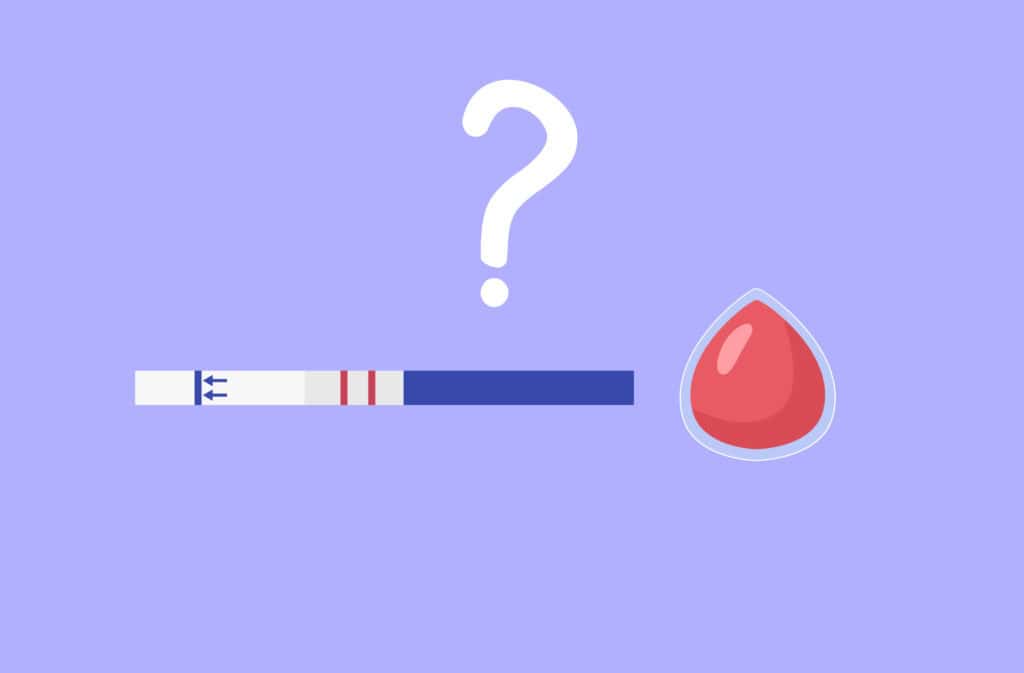
Experiencing bleeding during ovulation? Learn if it’s a sign of pregnancy or normal ovulation bleeding. Discover key differences and when to seek medical advice. Expert insights from Femia.

Learn is diarrhea a sign of pregnancy, its other reasons, early pregnancy symptoms alongside digestion issues, and treatment options.
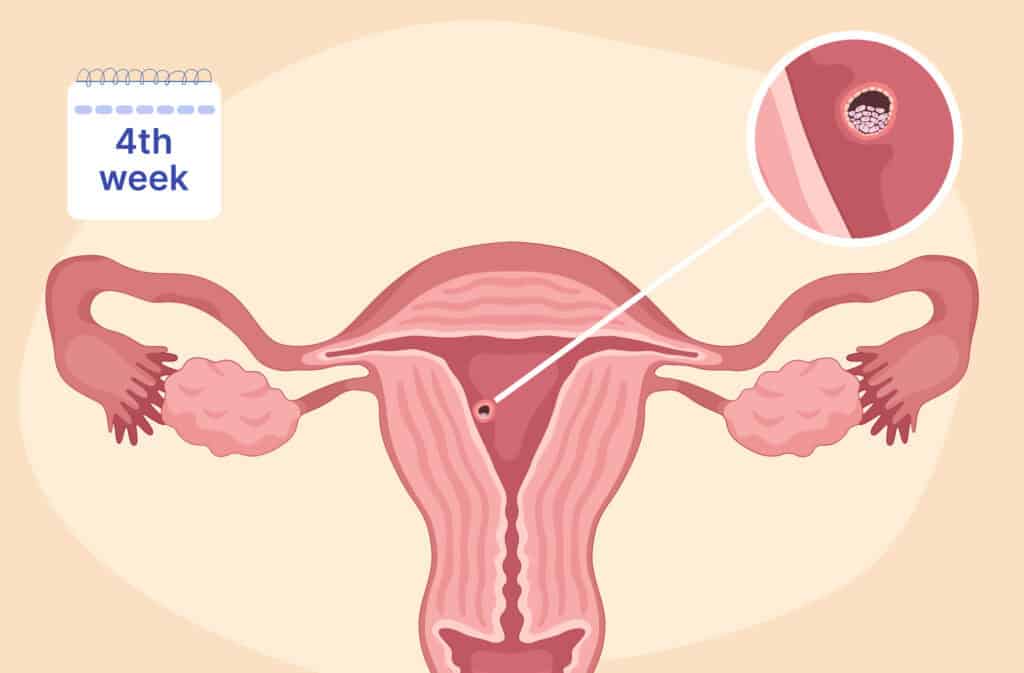
Learn about week 4 pregnancy symptoms, baby size, and the changes happening in your body as you progress in early pregnancy.

